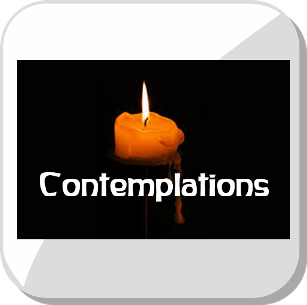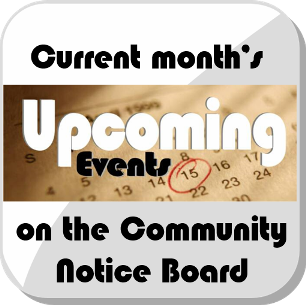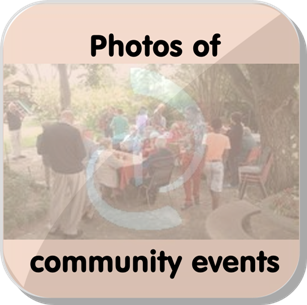|
Report by John-Peter Gernaat
The purpose of this talk is to connect again with the ten pericopes, the ten passages carefully selected from the gospels, for the ten Sundays between St John’s and Michaelmas. In the event that there are only nine Sundays in this period of Trinity the first of the ten pericopes is read on the last Sunday of St. John's. These pericopes are set for this period. These readings are carefully chosen to take us on a journey from the message of John the Baptist and what he is announcing through to what Michael is now able to do in our times. The great task of John is to be a witness, to be the one who can see the Spirit descending from the heavens and uniting itself with this human being, Jesus of Nazareth. John is the witness, but prior to being the witness he was, one can truly say, the last prophet, because he is the one announcing that something is about to happen and that we must be prepared for it. The key message is that the Kingdom of God is close at hand, it's coming, so prepare for it now by changing your ways, “metanoia”: transform your heart, your mind, your whole way of being. Turn within to face what is coming, be ready. This is a really strong message. When John is asked: “Who are you? Are you a prophet?”, he takes a position of great humility and answers: “No”. “Are you Elijah?” “No” “Are you the Christ?” “No, He comes after me.” He then quotes the words of Isiaah: “I am the voice crying out in the desolation of the desert experience of being on earth. I am the voice that says, ‘make straight the way of the Lord’”. John really sets us on a way, on the way of an internal experience. For the first five Sundays after St. John’s, we are still very much 'on the way', the way that St John has set for us. It is interesting that in the Gospel of John we hear that John recognises through his witnessing that Jesus of Nazareth is the Lamb of God. He wasn't the Lamb of God before the baptism, He is the Lamb of God as a consequence of the uniting of Christ with the human constitution of Jesus of Nazareth. John says to his disciples who are gathered with him, “there goes the Lamb of God”. Two of those disciples turn and follow the path that John has indicated: “there goes the Lamb of God”, and they follow Jesus on the path. As they follow Jesus He turns around and asks them the fundamental question: “What are you seeking?” The answer they give needs a little opening up of the translation that is normally given, which is: “Where do you live?” What they are asking is: “We want to know where your life is?”, “Where do we find you in life?”, “Where do you abide?”, “How do we find it and connect to it?”. Jesus says: “Come and see”, “Come on the journey and see”. For the first five weeks we are on a journey. For the purpose of this lecture these five weeks will be called ‘the way of St John’. The second five weeks move from St John to Michaelmas. When we read the ten pericopes we see the second five mirror the first five, in reverse order, so that what we hear on the first Sunday we hear again on the tenth, and similarly the ninth mirrors the second, eight mirrors three, seven mirrors four, and six mirrors the pericope of week five. It is interesting to note the gospels from which these ten pericopes, words, come. In the first five weeks one passage comes from Mark, one passage from Matthew and three passages from Luke. In the next five weeks one passage comes from Mark one from Matthew and three passages from Luke. The passages chosen for this time of the year are from Matthew, Mark and Luke. One begins to understand that John's Gospel stands the apart. We are not the only Christian movement to understand this and work with it. John is part of the whole experience of the gospel, but what he brings in his gospel really speaks to a different time of the year. Other churches recognise the same, and we need to ask what this means? This will be one of the things to be explored in our Tuesday evening exploration of the theology of the Act of Consecration of the Human Being. In order to speak of a New Decalogue, the passages have been given a name. These names are not fixed, and everyone may find their own names for them. For the first five on the Way of St John:
The next five are offered in a slightly different manner because they're looking forward towards Michaelmas.
The first Sunday: 'a confession on the way', comes to us from Mark 8; Peter being able to recognise and say: “You are the Christ”. Here comes the word, the first of the ten words of the New Decalogue that begins the Way of St John of transformation from St John’s-tide, now realised through Christ – it is the Way of Christ, of course: Mark 8:34 “If anyone desires to follow after me let them work on themselves and let them accept and carry their earthly destiny and follow me.” The translation given here is a more accurate translation of the original Greek. The words translated as “deny yourself” actually require that we do something with ourselves. It means that we can say “no” because we are able to say “yes”. This is the capacity to be able to work on oneself, to take on what it means to work with what we have. It means that we are able to put aside that which is unhelpful and embrace that which is. Then we have the Greek word that directly translates as ‘take up your beam’. Because the crossbeam is often seen as the crossbeam of the cross on which the bearer is crucified this has been translated as ‘take up your cross’. It was a common expression at the time that meant ‘to carry your burden’. The burden we all carry is to recognise a certain path of destiny. It is actually to do what is required of us. This is the beginning of being on the way. It expresses following, it expresses walking, taking it up, going forward into life. The second Sunday: ‘the narrow way’ from Matthew 7. There are three things that we have to do to go on the narrow way. They are: ask, seek and knock. “Ask and it will be given to you.” “Seek and you will find.” “Knock and it shall be opened to you.” We will not be asking, seeking and knocking in vain, but it has to start with us. It is there to be given, there to be found, the door will be opened, but we have to ask, we have to seek, we have to knock. In other words, the way has to involve our engagement. The third Sunday: ‘the human way’: “Father I have missed the mark in the presence of heaven and before you, I am no longer worthy to be called your son.” The father's response: “be swift, bring forth the stole – which is the prototype of the priestly and kingly garment – and carry out of the investiture”. Invest the young man and lift him to a new office, “and place a ring on his finger and sandals beneath his feet. Bear forth the cultivated, young shoot of grain and offer it up. Let us eat and celebrate, for this my son was dead and is risen to life again; was brought to naught, and has been found.” The word in koine Greek is for any young thing that one is preparing. Therefore, it could be a fatted calf, but the better translation of the Greek is to ‘cultivate the young thing that is growing’. It could very well be to cultivate the young grain that we're offering. Our offering is not an animal sacrifice, our offering is the offering of bread and wine. It is that young, cultivated shoot of grain or vine. What is interesting here is how the young man was found. He was found because he sought his own path back to the father. Therefore, not only seek and you will find, but seek and you will be found. The fourth Sunday is where he read about the twelve disciples sent to become the twelve apostles. What is so interesting is once they have become the twelve apostles, they have a new capacity. They returned from their sending and the five thousand are fed. What is so interesting is that Christ says when the five thousand are there: “you give them to eat”. Christ recognises the new capacity that is within them and therefore does not offer to feed the multitude himself. Christ then asks what there is available: five loaves and two fish. “So having taken the five loaves and the two fish, having lifted his sight to the higher vision of heaven he blessed them, broke them and gave them to the disciples to set before the crowd.” Christ gives the meal to the disciples to feed the crowd. There is something in this: we are given, through the power of Christ, to do the work of Christ. The disciples feed the five thousand, not Christ. At the end, it is the disciples who go and pick up the fragments and filled twelve baskets, each disciple filling one basket with fragments. The twelve are sent out and at the end there are twelve baskets left over. There is an abundance that is provided, more than is needed because the apostles can fill twelve baskets that are left over from five loaves and two fish. Christ demonstrates for the apostles what they will be able to do in the future without His direct presence. The fifth Sunday is the reading of the healing of the blind man. Luke 18: 35-43. It is important to note that in the Greek the man could be blind but could also be of impaired vision. The Greek word is not definitive, it speaks of a spectrum of poor sight. If he is a man of impaired vision then, when asked what he wants, he will identify exactly what it is that he is seeking. So, when Christ asks: “What is it that you will that I do for you?” The man does not say “please give me sight”, he says “please give me upper sight or higher sight”. It is very clear he says please allow me to look up. What he was lacking was a higher vision, not the ability to look around him. This is what it says: “Lord that I might recover my higher sight”. Christ says: “Recover your higher spiritual vision, your faith has healed you”. Faith is the strength of the man's belief that Christ can do this for him. The healing was always available, but the man needed the faith that it would be real in a relationship with Christ. Now we move to looking forward to Michaelmas. If you know something of Rudolf Steiner’s explanation of the twelve sense system, you will know that the sense of sight is something that leads us to insight – inner vision – and comes before we establish a new way of hearing and a new way of speaking. Thus, first we must have our higher sight restored before we can have our higher hearing restored and our higher speech restored. The sixth Sunday is the healing of the deaf mute. This is, one can truly say, a new word that can come from this man following a new way of hearing for, not only does he get to hear, he also gets to speak. Hearing and speech are very closely connected even in the development of the twelve senses. A real sense of hearing leads to speech. This happens in the teenager around the age of 15, when the teenager needs to hear for themselves. Up until this point the young person will repeat what they have heard others around them say. At the age of 10 or 11 the young person will happily repeat what their teacher has said and fully believe what they have heard. An example is that they will argue with their parents about how homework needs to be done, saying that it needs to be done exactly the way that the teacher said it needed to be done. As teenagers the young person will look around them at the world and realise that if adults had really understood the world, the world would not be in the mess in which it clearly is. It is now necessary for them to hear their parents and to hear their teachers in a new way, in a way that they can hear the whole of the world speaking out of an adult. For example: the teacher really does know what is going on. Once the teenager has truly heard the adult speak, they too can speak in a new way, having heard and listened. Mark 7:14: “Hear me, and properly understand the application of the whole of my words”. Then Jesus says the extraordinary word “Ephphatha!”, which does not mean 'be open', but ‘be opened completely’. “And his inner spiritual hearing was opened and immediately the bond of his tongue was unbound, and he spoke rightly without deviation. The crowd saying: ‘He has done all things well; he makes the dull of hearing to hear and those unable to speak proclaim’.” It is not just speaking, but it is the ability to proclaim; to be able to speak rightly from the place of the Christ-in-me. The seventh Sunday is ‘for peace’. Christ says to the seventy which he sends out: “When you arrive at a house where you might stay first say ‘peace to this house’. If a son of peace is resting there your peace shall be transferred as a power upon him. And remember, the one hearing you hears me, the one rejecting you rejects me.” So, when as you come into contact with another it is peace that you bring with you and the one hearing you accepts this, not just any peace, but the peace of Christ. It is a new way of being together, moving forward in this peace. We can speak about the importance of numbers, if one is sending out 70 one is sending out a complete span of time. Ten is the number for completion seven is the number for time. By sending out 70 one is sending out a complete picture of time. This allows us to clearly comprehend that we are currently in an incredible span of time where we are being sent all the time by God; the complete picture of what it is to be sent out as a human being in time. The eighth Sunday is ‘for faith, gratitude and certainty’. Luke 17:5: “Lord, increase our faith”, is the usual translation. It can also be accurately translated as “strengthen our faith”. Then we encounter the healing of the ten lepers. One of them discerns that he is healed. This is quite an extraordinary experience to recognise for oneself that one has been healed. Healing is a very important part of our understanding of this relationship. It is a word that comes up more than once in the Act of the Consecration of the Human Being – With Christ, the Father God creates, heals and ensouls. “One of them discerning that he was healed, turned back with a loud voice, recognising the real substance of God, fell on his face at Jesus’ feet giving praise to him.” It is important to note that it is one of ten who discerns that he has been healed. Ten lepers were healed, the complete experience of leprosy was healed, one tenth is also a complete recognition that the healing took place, something is still complete. So, in this passage we have had faith, we have had gratitude from the one who discerned his healing, and certainty appears in the verse where Jesus says: “be careful, people will say that the Kingdom of God is here or it is there, don't be fooled, behold the Kingdom of God is within you.” We can have the certainty that we have come a long way, the Kingdom of God will be realised within each human being, it will not be realised in the world out there if it is not first realised within the human being. The human being makes the Kingdom, the Kingdom does not make the human being. The ninth Sunday is for ‘do not worry’, ‘do not be anxious’, ‘do not be fearful’. In Matthew 6, the Sermon on the Mount, where translators have truly found the poetry to describe: “behold the lilies of the field, they neither toil nor spin, yet Solomon in all his glory was not arrayed as one of these”. How does one place one’s trust? How shall we not be anxious? Please note that Christ does not say, “do not attend to these things”, he says, “do not be anxious”. Our attention must be elsewhere, tend to something else and this too will be taken care of. Where then must we place our attention? Christ says: “seek first the Kingdom of God and His righteousness and all these things will be added unto you”. Our focus must be to firstly seek the Kingdom of God (we are back at seek, ask, knock), And we have just heard in the previous week, “behold the Kingdom of God is within” us. Seek first the Kingdom of God that is within you and the righteousness of that, the right way of that and all these things will be added. First know what your connection is then everything else will follow. It is important to start in the right place, not the wrong place. “Therefore, do not be anxious about tomorrow, for tomorrow will take care of itself, it is enough that each day has its own challenging disposition.” Finally, now that we have accepted the reality of how we are, we are ready for the future. On the tenth Sunday we hear that a woman has lost her one and only son, and she is a widow. Now she is a widow without a son. It is only when the body is being carried out that we hear the Christ say: “young man, I say to you, arise”. Nowhere earlier does it say that the man who has died is in fact young, it only says that he has died. It is possible therefore to interpret that there is a recognition at this point that the young man must rise. Something young and new is going to rise for him. “Young man, I say to you, arise.” The future human being, young man, arise. Let the forces of youth come now into you. These are words that we could say to each and every other human being. We can say that something of the energies of youth should arise within each human being. These are our ten words for a new way of relating to the Divine. In conclusion here are the ten words: “If anyone desires to follow after me, let them work on themselves, and let them accept and carry their earthly destiny and follow me.” “Ask and it will be given to you, seek and you will find, knock and it shall be opened to you.” “Be swift, bring forth the stole, carry out the investiture, place a ring upon his finger and sandals beneath his feet. Let us eat and celebrate for this my son was dead and is risen to life again, was brought to naught and has been found.” “’You give them to eat.’ So having taken the five loaves and the two fish and having lifted his sight to the higher vision of heaven, he blessed them, broke them and gave to the disciples to set before the crowd.” “Lord, that I might recover my higher sight.” “Recover your higher spiritual vision, your faith has healed you.” “Hear me all of you and properly understand the applications of the whole of my words. Be opened fully. And his inner spiritual hearing was opened and immediately the bond of his tongue was unbound and he spoke rightly without deviation and the crowd said: ‘He has done all things well. He makes the dull of hearing to hear and those unable to speak, to proclaim.’” “Say, ‘peace to this house’, and if a son of peace is resting there your peace shall be transferred as a power upon him, and the one who hears you hears me and the one rejecting you rejects me.” “Lord, strengthen our faith. And one of them, having discerned that he was healed turned back with a loud voice, recognising the real substance of God, fell on his face at Jesus’ feet giving thanks to him. And behold the Kingdom of God is within you.” “Seek first the Kingdom of God and His righteousness and all these things will be added unto you. Therefore, do not be anxious about tomorrow, for tomorrow will take care of itself. It is enough that each day has its own challenging disposition.” “Young person, to you I say, arise.”
0 Comments
|
Article Archives
December 2023
2022 - January to December
2021 - January to December 2020 - January to December 2019 - January to December 2018 - January to December 2017 - January to December 2016 - January to December 2015 - January to December 2014 - November & December 2013 - July to December 2013 - January to June 2012 - April to December Send us your photos of community events.
Articles (prefaced by month number)
All
|




 RSS Feed
RSS Feed